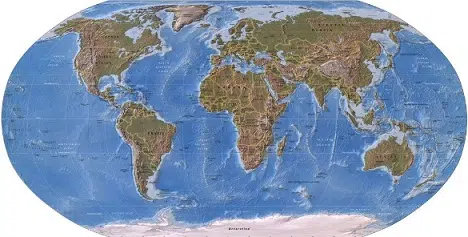 Neocolonialism is a notion that is formed with the compositional element neo- (which refers to the "new" ) and the noun colonialism (the doctrine that aims to establish and direct colonies). Before moving forward, it is important to mention that a colony is a region that is under the control of a foreign power.
Neocolonialism is a notion that is formed with the compositional element neo- (which refers to the "new" ) and the noun colonialism (the doctrine that aims to establish and direct colonies). Before moving forward, it is important to mention that a colony is a region that is under the control of a foreign power.
The idea of neocolonialism, therefore, refers to excessive influence or supremacy exercised by a powerful country, a multinational company or a former colonial power over an underdeveloped nation . Neocolonialism usually registers in the economic field.
Neocolonialism can be understood as a type of colonialism where domination does not require the use of force , but is established through political interference or interventions in the economy . Globalization , in this framework, usually favors this type of processes that are based on hegemony .
Neocolonialism can even be registered from the existence of an elite that, thanks to holding real or symbolic power, imposes itself on a large sector of the population.
In its origins, neocolonialism arose with the maintenance of the economic structures of the colonies despite political liberation . The former colonies, in this way, continued to depend on the metropolises due to their need for imports and because they lacked capital and technical resources to boost their production.
Over time, capitalism forged methods so that exploitation did not require territorial invasion or annexation . Through political strategies and economic measures, a neocolonialism appeared that continues to keep many peoples in a position of subordination .
Below we will talk in detail about some of the parts of the world that are under this type of excessive influence. Let's start with the African continent. Its peoples wanted to become independent from the European invasion that had led to several colonies, partly thanks to the inspiration they received from the success that India had achieved in this same area but also due to the resentment that grew in them due to the mistreatment to which the they submitted.
 On the other hand, after the Second World War two powers emerged, the United States and the Union of Soviet Republics, which had intentions of strongly influencing Africa despite not having been part of the invasion, division into territories and domination. which is known as the partition of Africa . Therefore, they used all the resources they had at their disposal to carry out their arms manufacturing market, propagate their ideology and control the region from the economic field.
On the other hand, after the Second World War two powers emerged, the United States and the Union of Soviet Republics, which had intentions of strongly influencing Africa despite not having been part of the invasion, division into territories and domination. which is known as the partition of Africa . Therefore, they used all the resources they had at their disposal to carry out their arms manufacturing market, propagate their ideology and control the region from the economic field.
Africa accessed large loans of money to cover needs such as the education and nutrition of its people and the transition to modernity in areas such as technology and communications. Various banks and countries were the ones who granted them these economic resources. Unfortunately, some dictators wasted them and managed to reduce the possibilities of their people to live in total freedom, away from the influences of neocolonialism.
Let's move on to neocolonialism that can be seen on the Asian continent. Russia became a power thanks to having conquered Siberia and Turkestan . In 1914, his Empire covered around 16 million square kilometers, making it the largest in the world. Their attempts to conquer Siberia began in the late 1500s and took a long time because they had to be attentive to the European front of their domains; Having just passed the Crimean War (which ended in 1856), they focused again on Asia.
One of the obstacles they had to face in their questionable undertaking was the presence of ice, which invaded the Pacific coastline for a third of the year. For this reason, they preferred areas closer to the south of the continent .
